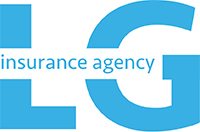Owning a condominium has a variety of benefits. You may have chosen to purchase a condo rather than a single family home because of the size, convenient location, amenities, or because you prefer high rise living. Perhaps you chose your condo because you loved the building, the view, or the idea of not having a yard to manage. Whatever the reason, your condo is still your home, so you’ll need to have homeowner’s insurance to protect your investment.
If you’ve purchased a condo, you’ll already be familiar with your condo association- and they’ll have insurance policies in place themselves. But what kinds of things does the condo association’s insurance policy cover- and what will you need to put in place yourself? Ahead, we’ll break it down.
Condominiums fall under the category of commercial residential properties, and thus have different concerns than a typical homeowner would when putting insurance policies in place. Condo associations typically have insurance that covers the entirety of the building itself for circumstances such as fire, wind, vandalism, and other property-related concerns. In addition, they will have significant liability insurance in place, and depending on the size of the building, additional higher umbrella limits on top of the base liability insurance.
The association will also have policies in place that insure the board of directors and officers. These policies are there to protect against concerns like theft and crime- both third-party and first-party. This way, if a board member decided to write themselves a check using your condominium association dues, coverage is in place that will remedy the situation. Condo associations are also responsible for external structure concerns- safety concerns, such as ample and appropriate lighting, exits, well-maintained sidewalks and curbs, and snow and ice removal and maintenance. Fire extinguishers and routine fire safety concerns are also the domain of the association.
While the association is responsible for policies that cover the building structure and common areas, such as pools, gyms, lobbies, and so on, there are some gaps between what the association covers and what you’ll need in place yourself to prevent major inconvenience. For example, while the association will have some flood and fire insurance in place for the building, if there is a significant event such as a major fire or flood that means you can no longer stay in your unit while repairs are made, the association’s policy will not pay the costs for you to move out. You will also need to have your own policy in place to insure your personal property, any upgrades that you make to your unit, and your own personal liability. In most cases, condominium associations have policies that cover the costs to rebuild and restore units to the most basic standards- anything beyond that will need to be covered in a personal homeowner’s policy.
In the case of condominiums that are of the townhouse style, and include things like individual garages, for example, you as a homeowner will have responsibility for your ground floor- and an individual flood insurance policy will be very helpful in the event of a flood or other issue. Individual owners should not rely solely on the insurance policies of their condo association to protect them in the event of an issue. Having significant and sufficient personal homeowner’s insurance policies in place is the best policy, particularly when the premiums for condo policies are so reasonable.
In short, for amounts between $400-$900 a year, you can be certain that you have coverage in place that protects you from a situation arising where there is a gap in coverage between what needs to be remedied and what the condo association’s policy covers. The wisest decision you can make as a property owner is the preventative choice. Discussing with your insurance professional what your options for coverage are, and learning what the coverage and limits are that your condo association has within their policy is crucial. Make sure that you know whether the association policy covers damage from risks like theft, lightning, storms, vehicular impact (if you have a ground unit), smoke, or fallen trees. Supplement any gaps with policies of your own, and you can rest assured that you’re covered in the event of any emergency.


